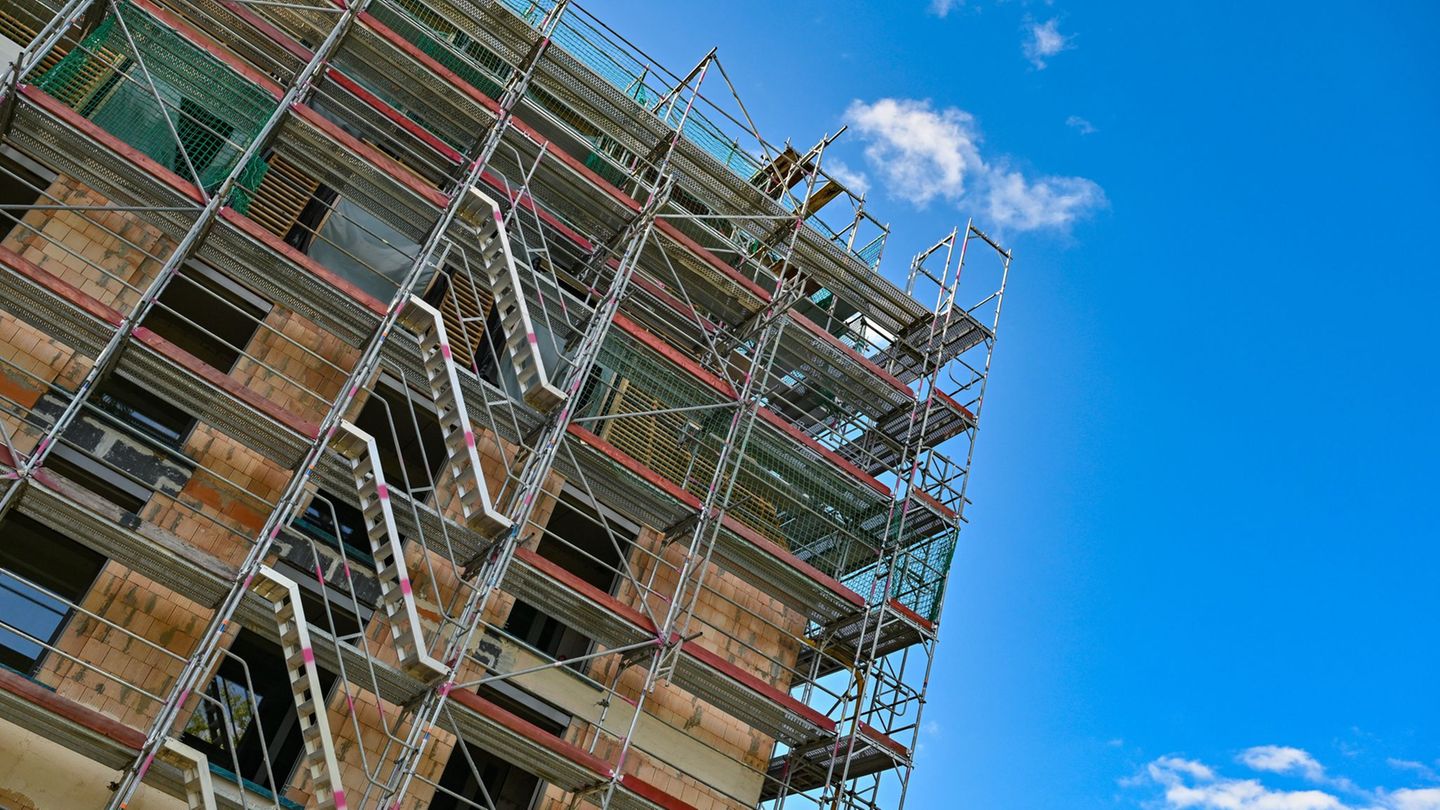property
IW forecast: Housing construction will shrink significantly in 2025 and 2026
Copy the current link
Add to watchlist
According to the German Economic Institute, the number of new apartments is likely to continue to fall – despite countermeasures by the federal government. This does not bode well for tenants and those looking for accommodation.
Gloomy prospects in the fight against housing shortages and rising rents in cities: According to the German Economic Institute (IW), the crisis in housing construction will worsen in the coming years.
After almost 252,000 completions last year, only around 235,000 apartments are likely to be built in 2025, the IW estimates in a forecast for “Wirtschaftswoche”. In 2026 there could only be around 215,000 apartments – despite the “construction turbo” that Federal Construction Minister Verena Hubertz (SPD) wants to counteract.
IW expert Ralph Henger believes that a decline in completions of 17,000 residential units in 2025 and a further 20,000 units in 2026 is unavoidable. The reason is the collapse in building permits in previous years. “Only what was approved back then can be structurally completed today and in the near future,” he told “Wirtschaftswoche”.
Years from approval to construction
In addition, it is taking increasingly longer from the issuance of a building permit to completion – namely 26 months, and in the important construction of multi-storey apartments it is even 34 months. “The period has increased significantly again in recent years, as many building permits were delayed or not implemented at all due to the rise in interest rates in 2022.”
A further decline in the number of new buildings and continued high demand would exacerbate the problems on the housing market and put pressure on rents. Experts estimate that there is a shortage of hundreds of thousands of apartments in Germany, and affordable living space is particularly scarce in metropolitan areas.
Even if the trend has recently been upwards, Henger believes that weak building permit numbers can be expected again for 2025 and 2026. In addition to the so-called construction turbo, the federal government must decide on further measures to reduce the costs of housing construction. Cities should also do significantly more for housing construction, “particularly when it comes to land management and the digitalization of building permits.”
Housing construction in deep crisis
Housing construction is in crisis following a rise in interest rates and high construction costs. In 2024, fewer apartments were completed in Germany than at any time since 2015. The traffic light government never achieved its goal of 400,000 new apartments annually.
The incumbent federal government wants to use the “construction turbo” to advance housing construction through faster approvals. In addition, the federal government wants to provide more support to families with small and medium incomes to build a house or buy an apartment with better funding conditions.
dpa
Source: Stern




